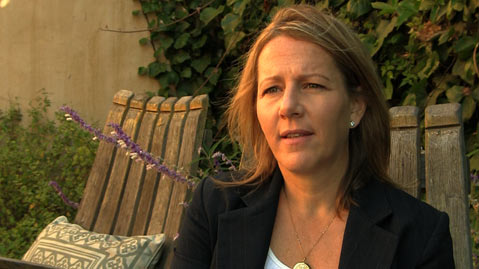Womb with a View
An Interview with Director Jennifer Miller

Santa Barbara filmmaker Jennifer Miller has written and directed a deeply personal film about 18 women who decide for a life without children. After having a hysterectomy and suffering grief “at the loss of her womb,” Miller decided to make A Womb With a View as a catharsis.
Some of the women profiled have made a conscious choice in their 20s not to have children.
For others, medical obstacles or circumstances have caused them to rethink motherhood. Among other topics, the film’s narrator ponders: “Is this an accepted position for a woman to have complete authority over her body? Is there a moral protocol to procreate? What consequences does society impose when the traditional path is not followed?”
Miller recently answered a few of my questions via email.
This is your first film. How long did it take you to make?
From conception to completion, the process took about two and a half years. Having made the choice with my husband to not have children, it was after my hysterectomy that I started experiencing a deep sadness over the physical loss of my womb. As a catharsis I began speaking to other women who did not have children. When I did I realized that they were amazing and productive women who contributed greatly to their families and society, so I made the decision to make a documentary.
I spoke to my teacher Shaw Leonard, who is also the Director of Cinematography for A Womb with a View. He told me the steps I needed to take to get it done. I took classes at the Local Access Channels to learn how to operate the camera and set up a shots. I ran ads on Craiglist in the Bay Area as well as Santa Barbara. A couple of interviews were done in the NY area.
After doing the transcripts, initial editing, and narrowing down 18 women from the 28 original interviews, I began putting a team together having realized I could not make a film alone. It truly is a collaborative effort. Completion of post-production took about seven months. That was the period when the movie came together and working with Ryan Wolfe, post production supervisor, we weaved the interviews together to tell the story as effectively as possible. Working as producer, my husband Peter facilitated the technical and business aspects so I could focus on writing and editing and the rest of the post-production process.
While you have made a very personal film, it is also very political. The narrator asserts that the choice to have or not to have children belongs to the woman herself. Was this directed at anyone specifically?
My intention was not to make a political film. I was very conscious from the beginning that I did not want to create a controversial film. The subject itself is a delicate one. I really feel that there is a primal reaction from people when the topic of childlessness arises. The women were so honest and forthcoming in their stories that I was determined to maintain that honesty. Some of what they say is pretty raw and my hope is that it will make people in the audience think, but overall it’s the subject itself that is a political one. My hope is that my film can break through any preconceived notions about these women and hopefully educate the audience on the value of these women and their experience.
Where did you find the 18 women who are profiled?
A couple of women were friends as well as friends of friends. I also ran ads on Craig’s List seeking women who did not have children whether by choice or circumstance. I was honored that these women were willing to open up and talk about a subject that is very sacred and private for many people. My hope is that their candor will open people’s minds and opinions about the role of women who do not have children.
One of the most compelling stories is about Sandya, a neurosurgeon who left India on her own to escape an arranged marriage. Does she still have any contact with her family in India?
Sandya is still in contact with her family in India and retains many friendships and ties there. Her strength was phenomenal to me and it was equally matched by her humility about herself and her own journey. Sandya does not hold anger but rather she owns herself and carries herself in a way that exemplifies a woman in this role. She will not be pigeon holed or told who to be. She is a wonderful example for all of us.
What is your expectation at the film’s premiere? Have you talked to any distributors?
Our hope is to attract as many people as we can to the screening on February 2 at 10 a.m. in the Metro 4. We have not yet spoken to any distributors but are hoping to have the opportunity to meet with some during the festival. We want to reach as large an audience as we can because I am convinced that there are many women and men for that matter who can relate to this subject. My hope is that the conversations from these women will afford an opportunity for a larger discussion on the topic.
A Womb with a View screens on Thursday, February 2, 10 a.m., at the Metro 4.



